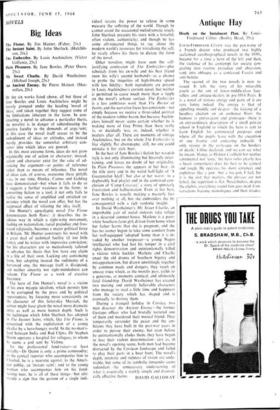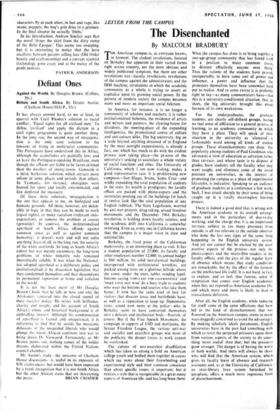Antique Hay
LOUIS-FERDINAND Ca INE was the pen-name of a French doctor who produced two highly acclaimed autobiographical novels in the 1930s, became for a time a hero of the left and then, the violence of his contempt for society con- gealing into routine prejudice and obsession, sank into obloquy as a confessed Fascist and anti-Semite.
The second of the two novels is now re- issued. It tells the story of his miserable youth as the son of lower-middle-class lace- sellers and antique-dealers in pre-1914 Paris. It is a novel of riotous energy and parts of it are very funny indeed. The energy is that of appalling muddle and despair—the kicking of a headless chicken on an outhouse floor; the humour is extravagant and grotesque—there is an extraordinary description of a small private school in England to I.vhich the hero is sent to learn English for commercial purposes and where all the pupils leave nith the exception of one frantic and endearing imbecile. 'I only rejoice in the grotesque on the borders of death,' COline declared, and we can see what he meant. Slangy as Holden Caulfield but neither sentimental nor 'cute.' the hero iv. ho clearly has a heart somewhere) does his best to be cynical and tough. lie operates his short sentences and expletives like a gun—but a toy-gun, I feel, for it is the zest that matters, the phrases are not lethal, the repetition is flat. Nevertheless, despite the clichés, everything round him goes mad. Con- versations become monologues and then tirades;
characters fly at each other, in lust and rage, like manic puppets; the boy's grin dries to a grimace. In the final chapter he actually %tubs.'
In his introduction, Andrew Sinclair says that the novel 'drops the skirt from the dirty rump of the Belle Epoque.' This seems too sweeping, but it is interesting to notice that the hero oscillates between parents selling lace (Old Order beauty and craftsmanship) and a corrupt scientist (technology gone crazy and at the mercy of the profit motive).
PATRICK ANDERSON































 Previous page
Previous page